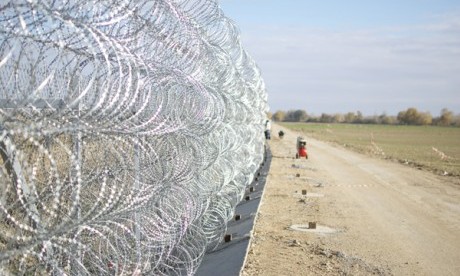They come seeking refuge, but when asylum seekers cross into the European Union, they often find little compassion. In Greece, they are held in squalid detention camps, while in Italy they often end up on the street. Here is what they face at entry points across the EU.
They know they are putting their lives at risk. Nevertheless, many people board ramshackle watercraft and set sail from the coast of Africa in the hope of a better life in Europe.
While a few years ago it was predominately North African migrants coming to Italy in search of work, today it is often refugees from Syria, Afghanistan and Somalia who are fleeing chaos and violence in their countries. The number of asylum applications in Europe has sharply increased in the past six years.
Refugees are “particularly vulnerable people,” warned German President Joachim Gauck after hundreds of people drowned off the coast of Lampedusa on Thursday. “Protecting lives and granting refugees the chance to be heard is at the foundation of our legal and moral codes,” he concluded. On Tuesday, the EU interior ministers gathered in Luxembourg to discuss the consequences of the accident, which resulted in around 300 deaths. But despite heavy criticism, they couldn’t manage to come to a decision about comprehensive change to European asylum policy.
The expectations of refugees who come to Europe often go unfulfilled. Many must struggle through long asylum application processes or fight against ingrained local prejudice. In some countries, they endure appalling living conditions in refugee camps; in others, they end up on the streets.
The correspondents of SPIEGEL ONLINE report on the situation in various European countries.
ITALY
By Hans-Jürgen Schlamp
The Lampedusa disaster has shaken the world — especially Italy. The populace watches the images on television with horror, the body bags lined up across the beach. How can this be? “A disgrace,” says Pope Francis. “Yes,” agree many, “a disgrace.” There is talk of solidarity. Italian Prime Minister Enrico Letta awarded posthumous Italian citizenship to the deceased. Continue reading
Sources
- Spiegel Online
- Image: euobserver.com
